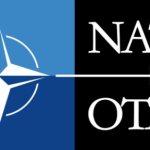The programme consists of industrial placements for EU/COSME students. It starts in September and ends in August of the following year in order to accommodate the academic year in EU Member States.
This programme aims to improve and stimulate the industrial co-operation and better mutual understanding between Japan and the EU.
The students follow:
- a one-week seminar on Japan,
- a four month intensive Japanese language course,
- an 8-month traineeship in a Japanese company.
The objectives are:
- to study the range of advanced technologies employed by a leading Japanese host company;
- to learn Japanese and to understand and appreciate Japanese culture with a view to an enriching one year experience abroad;
- to be well placed in a future career to interact with Japanese businesses and people.
Eligible students:
- citizens from EU Member States or a COSME partening country
- computer science, science engineering, mechanical engineering, chemical, electronics, biotechnology, electrical engineering, physics, telecommunication, nuclear engineering, civil engineering, metal materials, ceramics, production system
The students will be in at least the fourth year of a course at an EU/COSME University and the penultimate year of PhD. In accordance with the regulations of their respective universities, the students will be either undergraduates or postgraduate students who are able to take a year out – as a recognised part of their course or as a year off – or postgraduates. The students will have to provide a certificate of enrollment at the university prior to the starting of the programme.
Support:
This programme is financed by the EU-Japan Centre for Industrial Cooperation and the Japanese host company. The European students are awarded grants (Yen 1.900.000) to cover the cost of travel to and from Japan and living expenses in Japan.
There is no charge for the language course and seminar. and Accommodation is provided during the seminar, the language course and the company traineeship.
Applicants are selected on the basis of their academic record, the opinion of their tutors, their knowledge of written and spoken English, their motivation, their attitude to EU-Japan relations and their ability to adapt to a different culture.
Deadline:
23 January 2022.







Leave a Reply